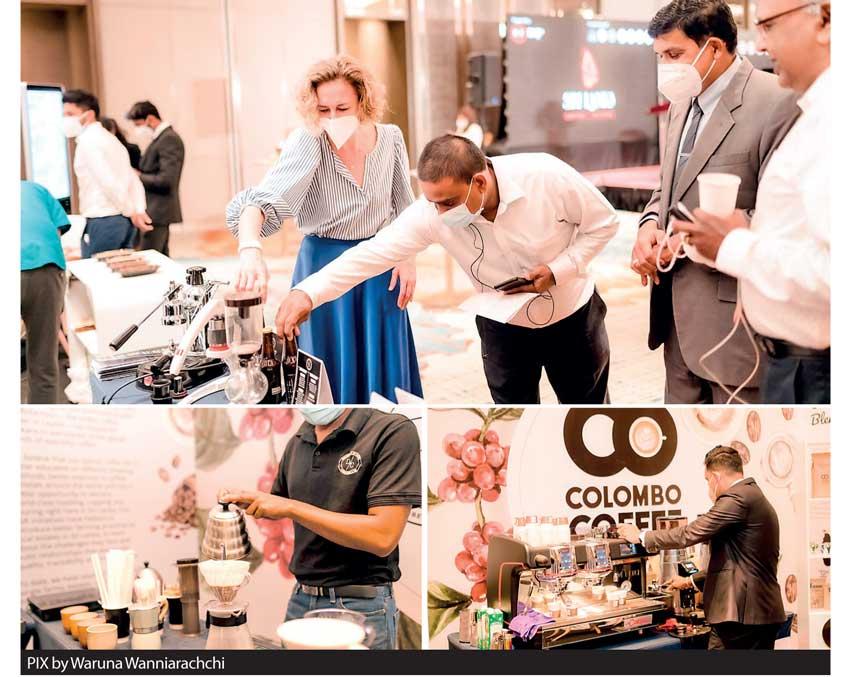Reply To:
Name - Reply Comment
Last Updated : 2024-05-18 20:50:00

By Shabiya Ali Ahlam
Efforts are underway to bring back Sri Lanka’s lost coffee industry with private sector stakeholders, together with the government assistance looking to bring specialty coffee, produced, processed and value added in the country, under fresh focus.
The intention to promote the coffee of Sri Lankan origin was highlighted at the first-ever Sri Lanka Coffee Festival that was inaugurated earlier this week.
The effort was kicked off by the Australia Market Development Facility (MDB), with the aim of luring investments into the coffee industry and encouraging private sector stakeholders to engage in the industry, which given the right impetus, could lead to becoming a potential area for exports.
Coffee can eventually be added to Sri Lanka’s export basket when the industry stakeholders become successful in optimising their practices through short, medium and long-term initiatives.
An Arabica Coffee Value Chain Analysis (ACVCA) by MDF found that the Arabica coffee industry in Sri Lanka can be profitable, if quality and consistency improve and production increases.
The coffee value chain begins with seedling availability in nurseries.
Research points out that the trees are well suited to grow in the vast mid and upper highlands and fare best when the growers intercrop the plants, especially with tea, making it ideally suited for Sri Lanka.
“The country is well-positioned geographically and climatically to produce high-quality, specialty coffee. However, there is much room for improvement,” the MDF said in its ACVCA.
It suggested that a starting point would be for stakeholders across the value chain and government decision makers to have better communication.
The bulk of the responsibilities lay in the hands of the Export Agriculture Department, as it should step up efforts in committing to industry expansion. This can be achieved by improving extension services, increasing assistance programmes and updating databases dedicated to Arabica farming, the MDF said.
Needed is an action plan to establish bean quality standards and certification programmes to provide transparent explanations for price differentiation.
Having the right system in place will motivate growers and traders to commit to producing superior products, as they would have first-hand knowledge of the characteristics and importance of cherry excellence.
“Once production and quality of raw materials increase, specialty coffee can become a thriving export industry,”
the MDF said.
Sri Lanka has a rich coffee past although the industry diminished and became negligible. In 1800, then Ceylon was one of the largest coffee exporters in the world. Coffee production peaked in 1870 but the industry was soon crumbled due to a leaf rust disease. By the 1890s, coffee plantations shrank to 4,609 hectares and tea production took over.
Sri Lanka is currently a net importer of coffee. In 2018, coffee export quantity for Sri Lanka was about 230 tonnes, which is over five folds less than its imports.
Research by MDF found that despite the availability of specialty coffee, Sri Lankans prefer to import coffee from countries such as Brazil, the United States, China, Italy and Australia.
According to Sri Lanka Customs statistics, the country buys seeds and roasted coffee from abroad. It is illegal to import green beans, due to quarantine regulations, yet raw materials are smuggled from India, due to better quality and price.

Add comment
Comments will be edited (grammar, spelling and slang) and authorized at the discretion of Daily Mirror online. The website also has the right not to publish selected comments.
Reply To:
Name - Reply Comment
The state-run loss-making State Mortgage & Investment Bank (SMIB) has reveale
US authorities are currently reviewing the manifest of every cargo aboard MV
On March 26, a couple arriving from Thailand was arrested with 88 live animal
According to villagers from Naula-Moragolla out of 105 families 80 can afford
17 May 2024 - 0 - 113